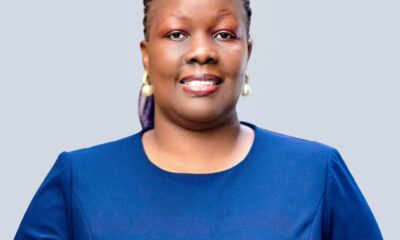Opinions
Electoral Colleges can save us embarrassment of poor quality MPs
The recent talk is about the quality of debate in our parliament. Deputy Speaker Jacob Oulanyah opened a can of worms when he, addressed a press conference at parliament where he decried the quality of debate in our parliament; and more worryingly the calibre of parliamentarians we have in the House. But this problem can be solved by changing our electoral system from universal suffrage to electoral colleges, Writes Davis Akampurira.
Mr Oulanyah lamented that our MPs are a type who are not given to intellectual arguments and debates while on the floor of the House principallybecause they don’t research and read widely. He compared the quality of our parliamentary debate to what he had seen in other “enlightened” parliaments, and deduced that we are still living in the Stone Age period.
Mr Oulanyahis absolutely right in this respect; however, rather than lament, we Ugandans should think of a solution to this. And this is through amending the national electoral laws to have electoral colleges as the key determinants of the people for elective offices like is the case in South Africa, USA, UK, Japan, and closer home, Rwanda.
For example in South Africa, MPs are elected using proportional representation and party lists. Before the election, each political party submits a list of its candidates in a numbered order of preference. The seats of parliament are allocated proportional to a number of votes cast in the election. This means aparty that won 10 per centofthe votes will get 10 per cent of the seats. If a party wins 20 seats, the first 20 people on its party list will become MPs. So in this case, rather than having people stampeded to parliament on the basis of their popularity irrespective of their poorquality as leaders , the political party through a rigorous sieving system will have a better grade of itsmembers represent the masses in parliament.
In America, the presidential candidates are subjected to both universal adult suffrage and electoral college votes. In fact the electoral college votes carry more weight than the popular vote; a candidate could win a popular vote, but if he/she fails to win a given number of electoral college vote loses the whole contest. This scenario played outin 1993during the election that pitted Democrat Bill Clinton against the incumbent George Bush Snr (Republican) whereby the latter obtained the popular vote but was beaten to the Electoral College vote by the former.
For Uganda’s case, we could adopt the electoral collegesystem as well as the popular vote system-which is commonly the universal adult suffrage system-wherebycandidates are subjected to universal adult suffrage but must obtain a specified number of electoral college votes to win elective office. Theelectoral college in this case would act as a sieve against poor quality leadership. The proposed law could spell out the modalities for constitution of electoral colleges and qualities of members of the electoral college. The end result is that we must have people with high sense of judgmentto constitute electoral colleges.
Assuming the members of parliament were subjected toelectoral college vote, we could have a situation where only leaders worth their salt and calibre go through to represent us in parliament.
This is also good because it places the burden of accountability on a given political party other than an individual politician. The norm in Uganda and most African countries is that voters run to individual political leaders/MPs demanding for money, contribution for burials, graduation parties, school fees, constructing schools, hospitals, roads, etc, a fact which has forced most MPs in severe indebtednessbecause of having to borrow money from money sharks to clear their obligations which would include the needs of their individual voters. But under the electoral college system, the voters would run to the party to demand for accountability including the provision of social services.
We do have an electoral college system for special interest groups such as the youth, workers, people with disabilities andthe army. Indeed some of the parliamentaryrepresentativeswho are elected through electoral college system have distinguished themselves as better debaters in the House. We have seen MPs like Dr Sam Lykomokiarticulate issues concerning workers. Gen EllyTumwinewould also come across as an erudite debater. Youth MP Gerald Karuhangahasn’t disappointedwhen it comes to articulating issues on the floor.
All in all, the electoral college system, to a greater degree, would save us the pain and embarrassment of mediocre MPs in the House.
The writer is Secretary External Relations at National Youth Council (NYC)
Comments

















